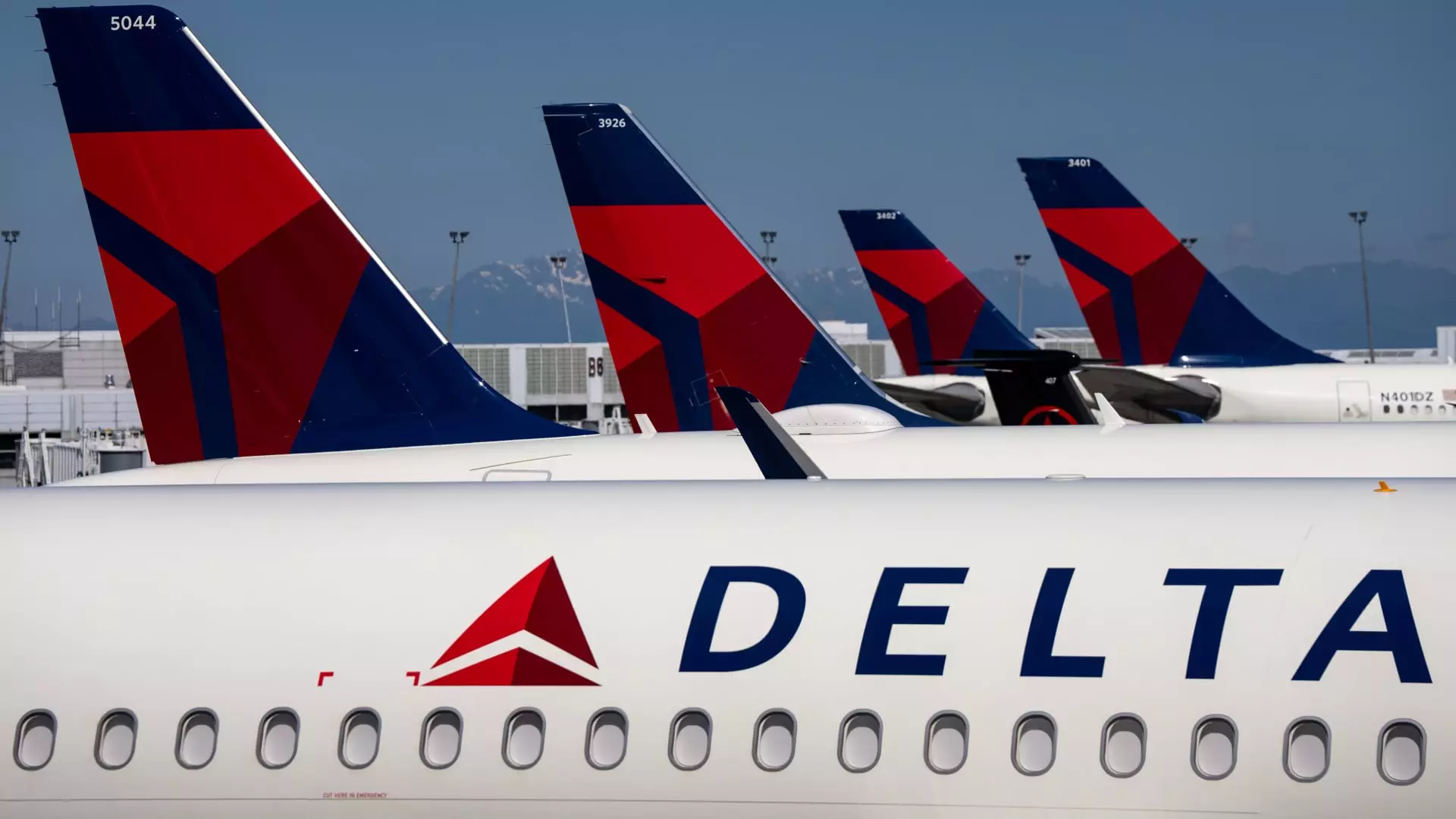In the world of aviation, adaptability is a fundamental skill for survival. Delta Air Lines, one of the most profitable airlines not just in the U.S., but also globally, is currently grappling with challenges that are threatening its expansion plans. As the airline industry recovers from the hardships of the pandemic, Delta’s CEO, Ed Bastian, has expressed concerns about the slowing demand for air travel, an issue exacerbated by turbulent economic conditions and shifting trade policies under President Donald Trump. This article delves into how these external factors are reshaping Delta’s trajectory and raising pressing questions about the future of air travel.
The Forecast: A Wink of Caution
In a disheartening revelation, Delta recently forecasted its second-quarter revenue to either decline by 2% or increase modestly by a mere 2% compared to the previous year. This grim outlook starkly contrasts with Wall Street’s expectations of a 1.9% growth and has forced analysts to reconsider their projections significantly. Earnings per share are also projected lower than anticipated, reflecting a cautious approach in a sector that thrives on optimism and forward-thinking expansion.
This inability to expand operations in the latter half of the year underscores not just Delta’s unique challenges but also raises alarms about broader trends in the airline industry. Bastian’s sentiments reflect an underlying tension where corporate confidence is wavering, and consumer spending, particularly in travel, has taken a hit. The commentary about “the wrong approach“ taken by the current administration indicates that CEOs are beginning to question the long-term viability of policies that traditionally prompted growth in the airline sector.
A Shift in Travel Demand
Delta’s shift from an optimistic start to a more cautious forecast highlights a significant pivot in consumer behavior. At the beginning of the year, travel demand was booming—estimated at nearly 10% growth. But as geopolitical tensions rise and economic uncertainty clouds the horizon, corporate entities are withdrawing from planned travel. This pattern demonstrates how interconnected the aviation market is with overall economic health.
Interestingly, while main cabin bookings show a downturn, international and premium travel remain relatively robust. This distinction suggests that although the general appetite for travel has dampened, segments with higher profit margins are proving to be more resilient. However, Delta cannot afford to rest on these laurels; economic indicators suggest this trend could be fleeting if global trade continues to falter.
The Corporate Landscape: Earnings and Expectations
Delta is not alone in this precarious situation; numerous other airlines are poised to report similar concerns as they follow Delta’s lead. With major players like United, American, and Southwest preparing to announce their earnings imminently, analysts project potential capacity reductions could become common across the industry. This raises the stakes for airlines, as they will have to navigate a landscape characterized by lower demand and tighter profit margins.
The effects of these economic shifts are tangible. Delta recently revised its expectations for 2025, indicating that they have opted for a more prudent, measured approach instead of full-throttle expansion. In his statements, Bastian highlighted a firm commitment to protecting margins and cash flow in these uncertain times, hinting that strategic pivots will be crucial for staying afloat.
A Broader Perspective on Economic Impact
The current narrative surrounding Delta and the airline industry at large is reflective of a broader economic context. As consumer and corporate confidence declines, airlines are left exposed, and the pressure to adapt becomes even more acute. The remarks from Bastian signal a growing discontent among corporate leaders about how fluctuating economic policies hinder their plans for secure growth.
In examining these developments, it becomes clear that Delta’s path forward is not merely a microcosm of its own business strategies but serves as an illustrative case of the complexities facing industries heavily reliant on consumer confidence and global trade. The roads ahead for Delta and its rivals will entail tough decisions about capacity, pricing, and service offerings, all under an umbrella of uncertainty shaped by external economic forces.
Navigating these challenges will require not only strategic foresight but also resilience in the face of unpredictability, as the landscape of air travel continues to evolve amid turbulence in global markets.


Napsat komentář